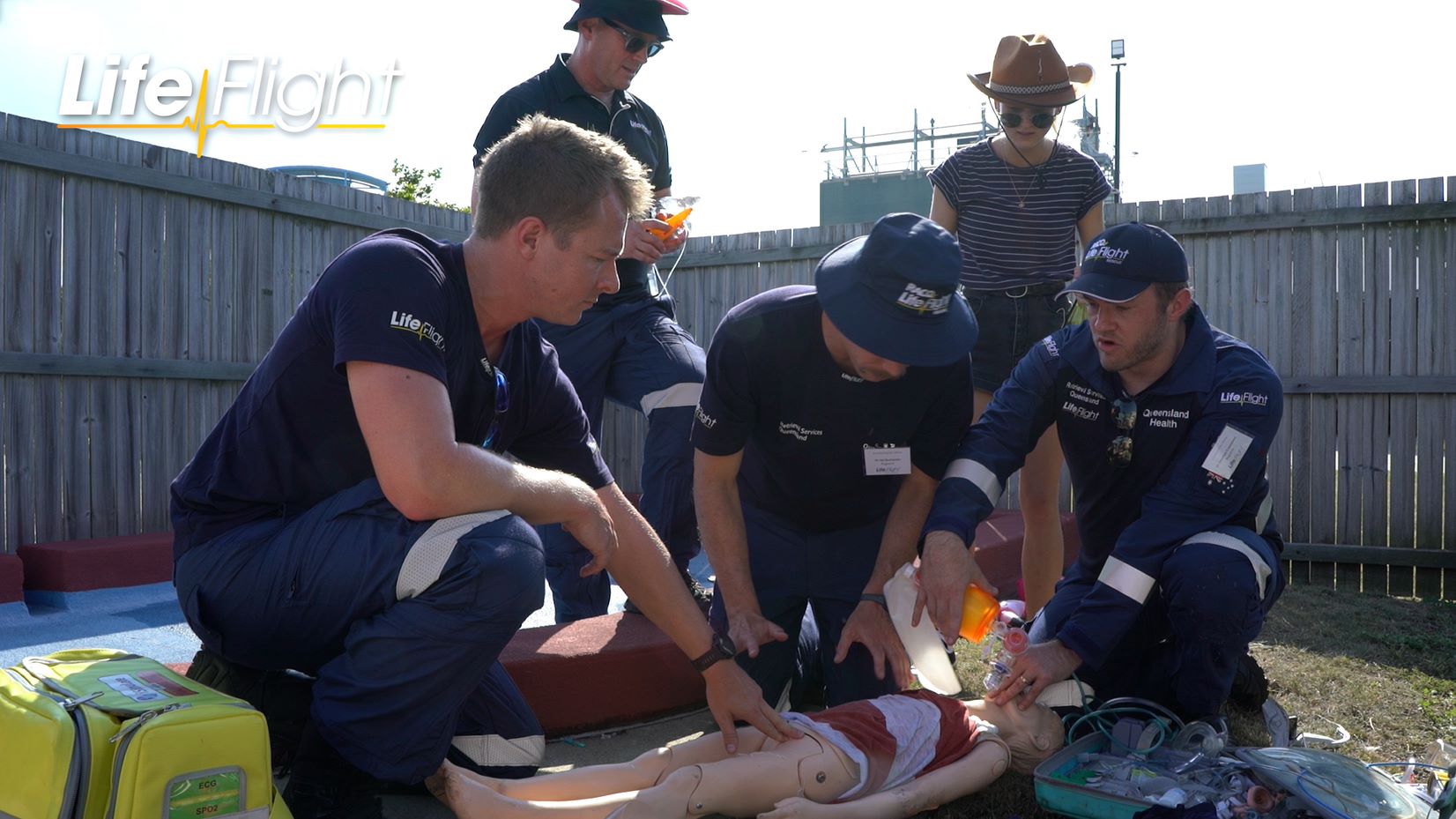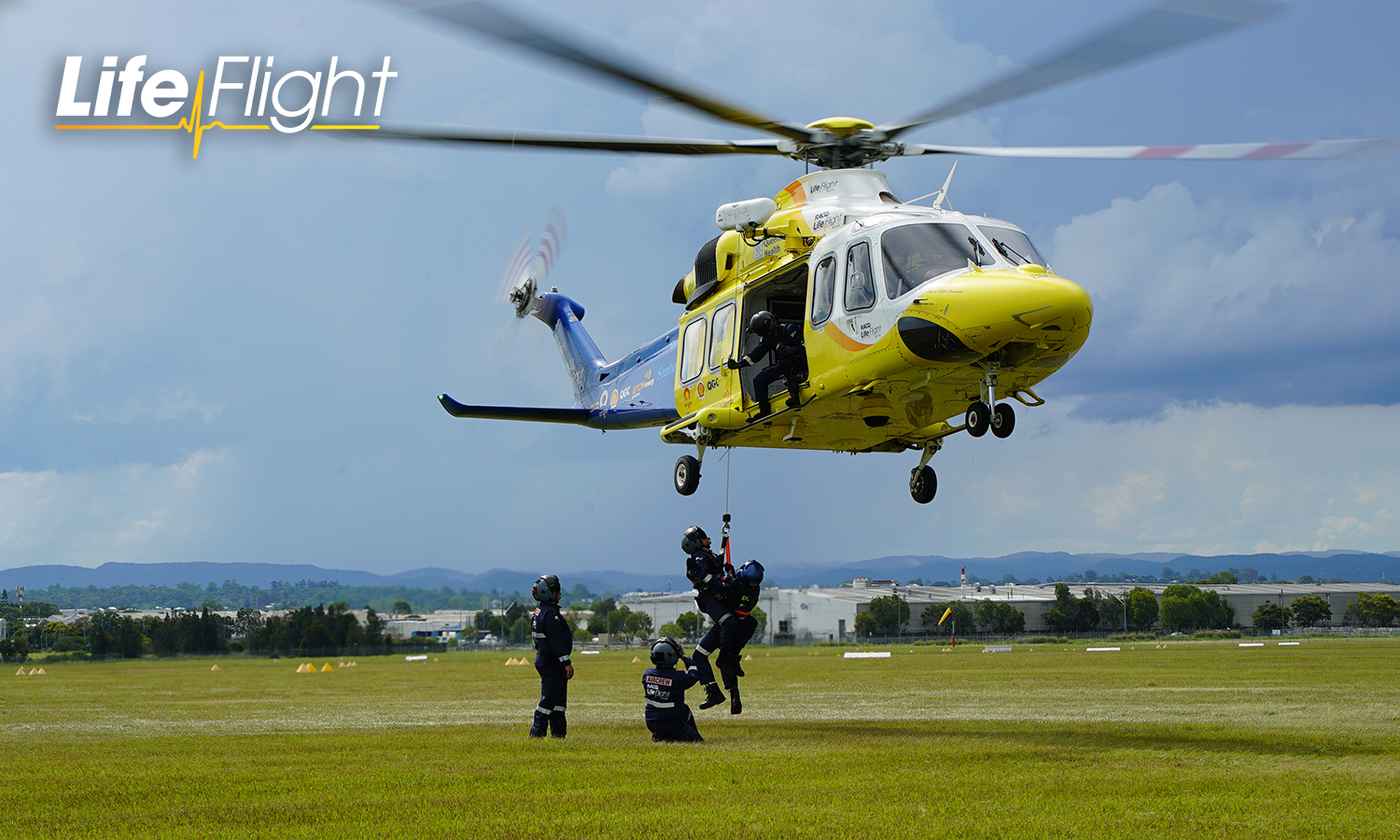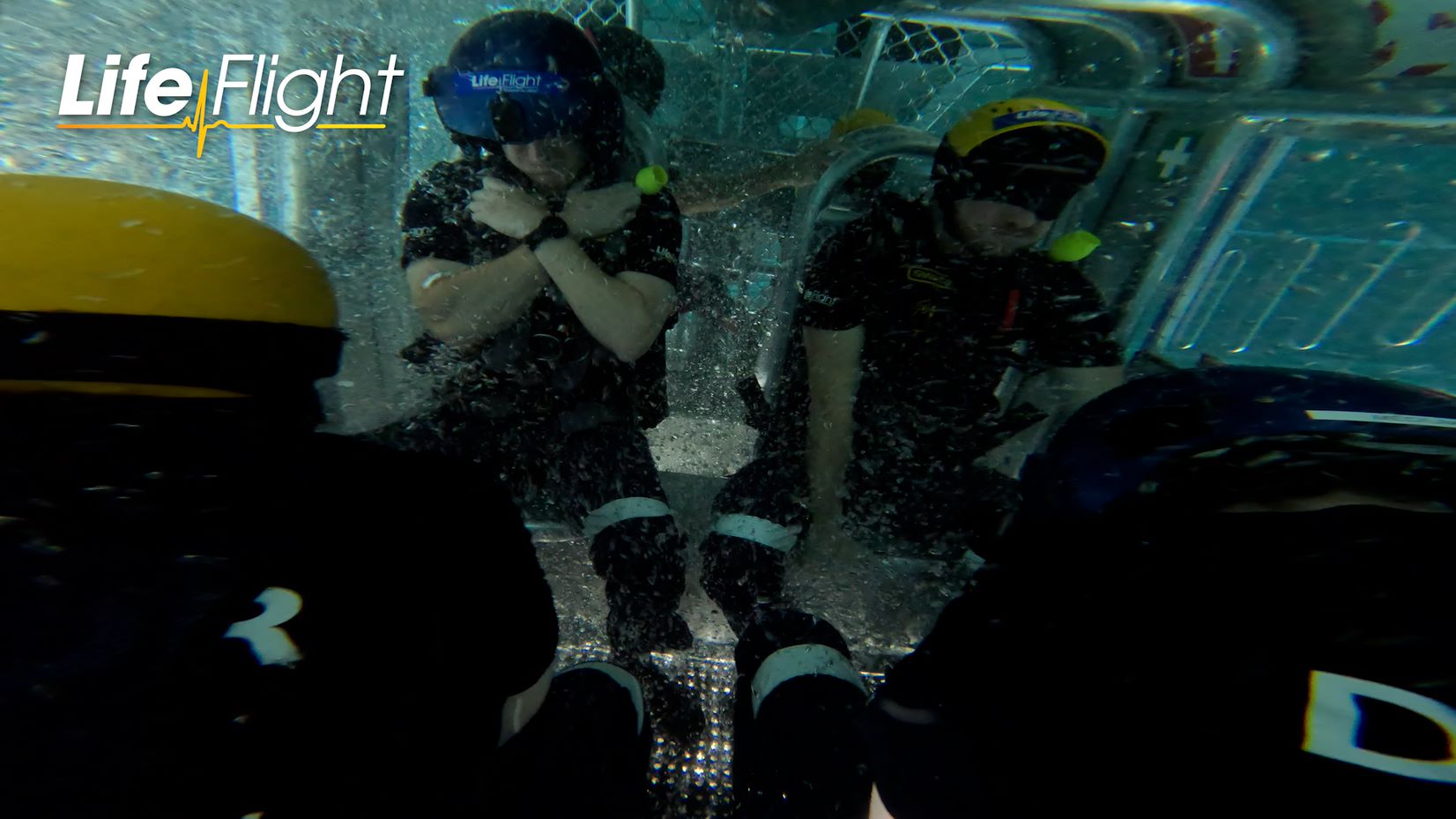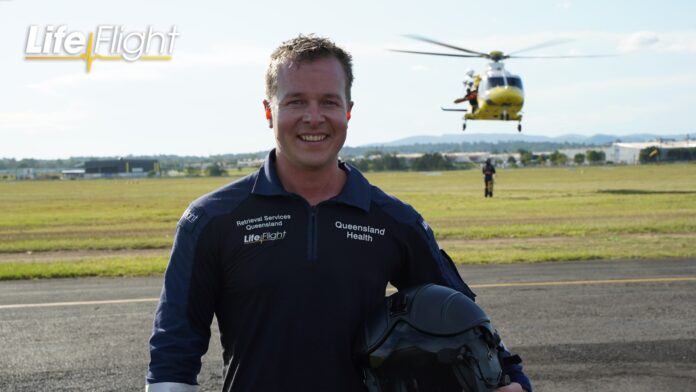A highly skilled emergency doctor who is passionate about making a difference in his community has joined the Sunshine Coast aeromedical base.
Dr Hamish Brown is swapping hospitals for an exhilarating career as an RACQ LifeFlight Rescue critical care doctor.
He is one of four new retrieval registrars joining the local team, after undergoing a rigorous training course with 29 other new recruits who will be based with aeromedical services across the state.
SUBSCRIBE here now for our FREE news feed, direct to your inbox daily.

The Scottish doctor, who specialised in emergency medicine, has lived in Australia for about eight years, calling the Sunshine Coast region home more recently.
The new registrar said he was thrilled to help his community by starting his aeromedical career with LifeFlight.
“I’ve only ever done emergency medicine in the hospital, so I actually relished the opportunity to do pre-hospital medicine,” Dr Brown said.
“Flying in the helicopters, working in this region of the world and being part of this team just really excited me, so I just jumped at the opportunity.”
Before taking to the rescue chopper, Dr Brown underwent thorough pre-hospital and retrieval clinical skills training at LifeFlight Training Academy.
The world-class aeromedical training requires RACQ LifeFlight Rescue critical care doctors to learn helicopter winching techniques and complete the Helicopter Underwater Escape Training (HUET).

LifeFlight’s chief aircrew officer Simon Gray said the winch training gave doctors the skills to treat patients in difficult-to-access terrain.
“This training is the most important thing that they do,” Mr Gray said.
“They already know how to provide critical care as doctors, but the things we’ve taught them in aviation training are new to them.
“At the end of the day, we need to be able to put these doctors in a variety of situations to help a patient, and winching them is just another technique that we have – especially if someone is injured and there is no vehicle access.
“They may do this on their very first shift. They may not do one at all, but we have to be prepared.”
LifeFlight HUET manager Mick Dowling said the HUET aspect of training fully readied doctors for the extremely unlikely event of a helicopter crash.
“If that helicopter is landing on the water, it is going to roll over and sink,” Mr Dowling said.
“The skills that we teach the guys in our dunkers allows us to teach them the skills to stay orientated so they can locate exits, operate seatbelts and then find their way out in a very easy manner.”

Dr Brown added: “That’s like being in a washing machine for about four hours – a lot of water up the nose, but it’s obviously essential for flying over water and safety is hugely important here.”
The new critical care doctors also put their clinical skills to the test, participating in high-pressure scenarios at the Queensland Combined Emergency Services Academy at Whyte Island in Brisbane.
The scenarios simulate some of the most extreme situations the doctors may face, including a multi-vehicle crash, a pool party with a drowning child, and even a ship disaster.
Local journalists supporting local people. Help keep independent and fair Sunshine Coast news coming by subscribing to our free daily news feed. All it requires is your name and email. See SUBSCRIBE at the top of this article.





